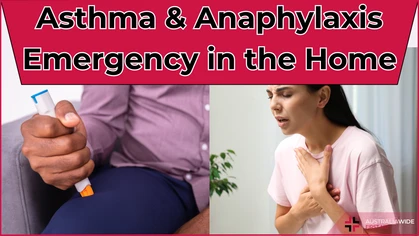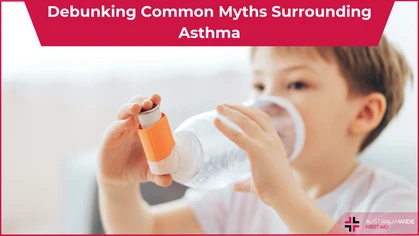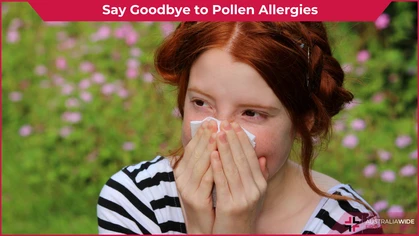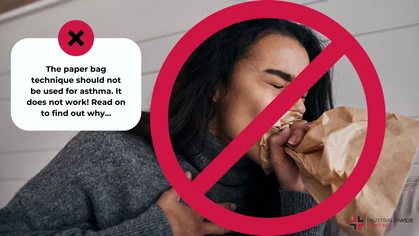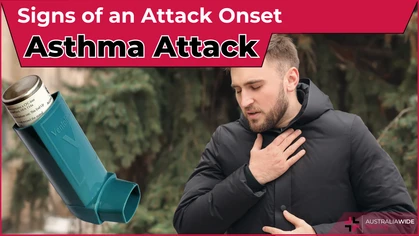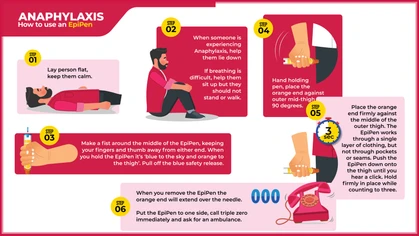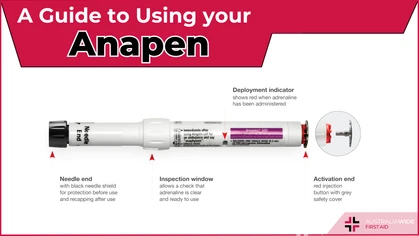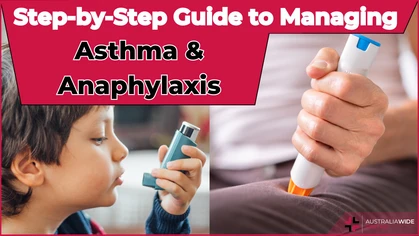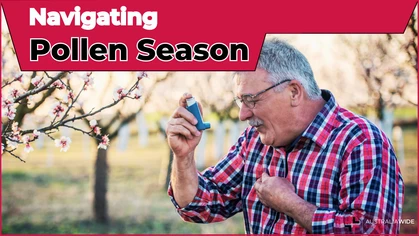Asthma Triggers and Asthma Plans

Allergy and Asthma
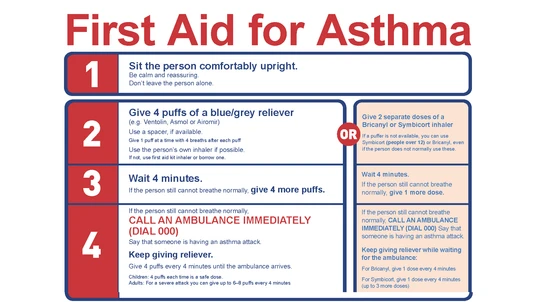
First Aid for Asthma
'Asthma Triggers' bring on a person's asthma symptoms, often times creating a medical emergency. Asthma triggers are not the same for everyone. For that reason, Asthma Action Plans are personalised. The purpose of an Asthma Management plan is to advise which actions to take should the owner be exposed to a trigger. The owner's asthma triggers are identified in the management plan and tips are provided on how to reduce exposure to them. Asthma sufferers should work with their doctor to determine which factors trigger their symptoms. Solutions and alternatives can be discussed. For example, you can decide together on a level of exercise you could safely manage.Common Triggers
Despite asthma triggers varying significantly, common triggers include:- Colds & flu
- Cigarette smoke
- Exercise
- Inhaled allergens (e.g. pollens, moulds, animal dander, dust mites)
- Environmental factors (e.g. dust, pollution, wood smoke, bush fires)
- Changes in temperature and weather
- Certain medications (e.g. aspirin)
- Chemicals and strong smells (e.g. perfumes, cleaning products)
- Emotional factors (e.g. laughter, stress)
- Some foods & food preservatives, flavourings & colourings (uncommon)
Colds and Flu
Colds and flus are part of life and difficult to avoid. During cold and flu seasons, wash your hands regularly and try to avoid close contact with people who have cold and flu symptoms. Eat a healthy vitamin-enriched diet and make sure you are getting sufficient sleep. The flu vaccine is recommended if, for example, your respiratory health is compromised by asthma. Otherwise, in such a compromised case, it's possible a flu infection could develop into pneumonia.Inhaled Allergens
Regular cleaning of your home will help keep allergens – moulds, animal fur (dander), dust mites, etc – at bay. Air purifiers and filters are designed to combat allergens. As effective as these systems claim to be, they cannot guarantee to eliminate all allergens in your home. The particles still present may continue to cause asthma symptoms in sensitive people. Washing bedding regularly in hot water helps. Special dust-proof bedding and hypoallergenic pillows that limit dust and act as a barrier to dust mites, can also be purchased.Cigarette Smoke
Cigarette smoke reduces the effect of asthma medication and increases the risk of an asthma attack. It’s not easy to avoid cigarette smoke. You’ll need to actively avoid situations and places where people smoke, including avoiding smokers while you're out walking. Talk to your friends and work colleagues about your asthma and let them know that cigarettes smoke can trigger an asthma attack.Environmental Factors
Environmental factors are difficult to avoid. Get to know the areas where fumes and pollution are prevalent. Panel beaters, factories, and industrial areas can all trigger asthma attacks. Take precautions or avoid those places where possible. Avoid exercising in areas with high pollution and opt for somewhere with cleaner air. If high pollution is a regular concern, talk to your doctor about increasing your medication to help counteract this trigger.Asthma Action Plan in place
You need an Asthma Action Plan because exposure to asthma triggers will at some point be unavoidable, despite your best efforts. Should an asthma attack have you in its grip, a person at the scene could help you without delay by following clear instructions in your Asthma Action Plan. This is why it's important to keep it, and an asthma inhaler, on your person at all times, wherever possible. A good Asthma Action Plan includes:- Instructions about your medication and where it’s usually kept
- A list of your asthma triggers, in order to minimise further exposure
- Advice on determining whether your asthma is getting worse
- Instructions on what to do should symptoms worsen
Signs of an Asthma Attack
- Increasing wheezing, coughing, tightness in the chest, shortness of breath
- Waking often at night with asthma symptoms
- Asthma reliever is needed again within 3 hours
Signs of an Asthma Emergency
- Symptoms get worse very quickly
- Severe shortness of breath, struggle to speak, lips look blue
- Little or no relief from asthma reliever/inhaler
Not sure it's asthma?
If a person is conscious but their breathing is a problem, follow the asthma first aid steps. If they’re not asthmatic, asthma reliever medicine is unlikely to harm them.Severe Allergic Reactions
Find and follow the person’s Action Plan for Anaphylaxis if available. If the person experiencing a severe allergic reaction has a history of severe allergies, administer their adrenaline auto-injector (e.g. EpiPen) before providing asthma reliever medicine. If you are unsure what to do: Dial 000 to call an ambulance immediately Tell them it’s an asthma emergency Follow the steps outlined on the chart displayed at the top of this page. If someone near and dear to you is an asthma sufferer, learning first aid is highly recommended. Our first aid courses cover first responder treatment for asthma. Our Provide First Aid courses include not only a solid understanding of asthma symptoms and use of inhalers, but also a comprehensive array of treatments for medical emergencies of all kinds.
Originally published at
https://www.australiawidefirstaid.com.au/resources/asthma-triggers-and-asthma-plans
as part of the Australia Wide First Aid Articles Library
